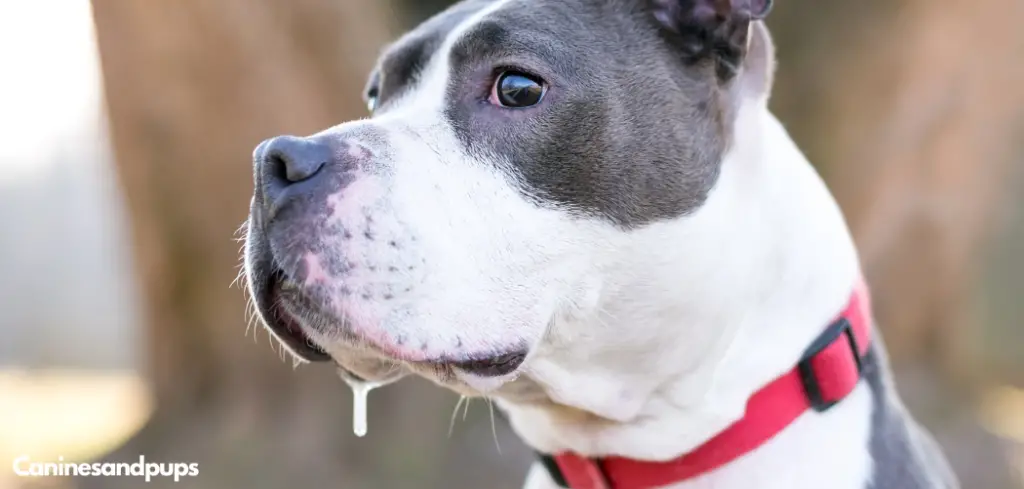When your dog starts hiccuping and suddenly loses interest in food, it can leave you feeling confused and worried. Hiccups may seem harmless, but when they’re paired with a lack of appetite, it could be a sign of something more serious.
We outline the common causes of dog hiccups and not eating, what you can do at home, and when to seek veterinary help.
Dog Hiccups and Not Eating — Why It Happens
Dogs can experience hiccups and appetite loss from both minor and serious health issues. Causes range from gastrointestinal irritation and stress to more critical conditions like esophageal disorders or respiratory distress.
In puppies, hiccups are often harmless, but in adult dogs, especially when they stop eating, the symptom pairing deserves closer attention.
Sometimes, even seemingly unrelated issues like parasites or acid reflux can be to blame.

Common Causes of Dog Hiccups and Not Eating
Acid Reflux
Acid reflux occurs when stomach acid backs up into the esophagus, irritating the lining and causing spasms that resemble hiccups.
This irritation can make eating uncomfortable or even painful for your dog, leading them to avoid food.
You may also notice lip licking, swallowing noises, or your dog looking uncomfortable after meals.
Chronic acid reflux can inflame the esophagus and stomach lining, requiring dietary adjustments and medical treatment to manage.
Gastrointestinal Upset
Mild GI upset from eating something inappropriate, a sudden food change, or bacterial imbalance can cause both hiccups and reduced appetite.
Your dog’s digestive system becomes irritated, and this irritation may trigger hiccup-like spasms.
They may also feel nauseated or bloated, which further discourages them from eating.
If the symptoms persist for more than a day, it could indicate a deeper digestive issue.
Read more: Dog Gagging and Not Eating (Is it something stuck or more serious?)
Stress or Anxiety
Dogs often show stress through physical symptoms, and hiccups can be one of them.
If your dog recently experienced a stressful event—like travel, a change in household dynamics, or loud noises—it may affect both their nervous system and digestive tract.
Hiccups paired with a refusal to eat could indicate your dog is overwhelmed. You might also see pacing, trembling, or hiding behavior.
Stress should not be ignored, especially if it leads to prolonged food refusal or physical distress.
Esophageal Irritation or Megaesophagus
An inflamed or malfunctioning esophagus can disrupt both breathing and digestion. Megaesophagus, for example, prevents food from traveling smoothly to the stomach.
This can lead to hiccup-like spasms, coughing, regurgitation, and a lack of appetite.
You might notice your dog stretching their neck or gagging after eating attempts.
This condition is serious and requires veterinary diagnosis, dietary changes (such as upright feeding), and possibly lifelong care.
Respiratory Irritation
Inhaling irritants such as smoke, dust, or allergens can trigger hiccup-like responses and reduce appetite due to discomfort.
Your dog’s diaphragm may spasm while they try to breathe through nasal congestion or airway inflammation.
If this irritation is combined with symptoms like coughing, nasal discharge, or sneezing, it’s likely tied to a respiratory problem.
Loss of appetite in these cases may stem from difficulty breathing while eating or general discomfort.
Intestinal Parasites
Parasites like roundworms and hookworms can irritate the digestive tract, causing hiccups in young dogs or small breeds especially.
Infected dogs may feel bloated, nauseated, or weak, leading to a refusal to eat.
Parasites can also cause nutrient malabsorption, weight loss, or diarrhea.
Routine deworming and fecal checks are essential to rule this out.
What to Do If Your Dog Is Hiccuping and Not Eating
If your dog has hiccups and skips one meal but is otherwise acting normal, you can monitor them closely for the next 12–24 hours.
Make sure they have access to fresh water and try offering a bland meal such as boiled chicken and plain rice.
You can also try gently walking them or giving them time to relax, which may help stop the hiccups.
If you suspect acid reflux, offer smaller, more frequent meals and avoid fatty or spicy treats.
Minimize stressors in the environment—such as loud noises or sudden changes—and maintain a consistent routine.
However, if your dog refuses all food, shows signs of pain, or seems lethargic, do not wait longer than a day to call your vet.
When to Call or Visit Your Vet
Contact your vet immediately if your dog:
Has persistent hiccups lasting more than a few hours
Has not eaten in over 24 hours
Shows signs of pain, bloating, or vomiting
Is coughing, gagging, or having trouble breathing
Seems lethargic, disoriented, or unusually quiet
Hiccups themselves aren’t usually dangerous, but combined with not eating, they can indicate a larger health issue. Early veterinary care can prevent complications and get your dog back on track.
Read more: Dog Panting and Not Eating (What it means and when to worry)
Key Takeaway
While dog hiccups on their own may seem cute or harmless, the addition of appetite loss should make you pause.
From digestive upset to stress or more serious esophageal or respiratory issues, several conditions could be to blame.
Support your dog at home with gentle care, bland food, and a calm environment—but don’t delay seeking veterinary advice if the symptoms persist or worsen.
Your dog’s health and comfort depend on early intervention and understanding what their symptoms may be trying to tell you.
